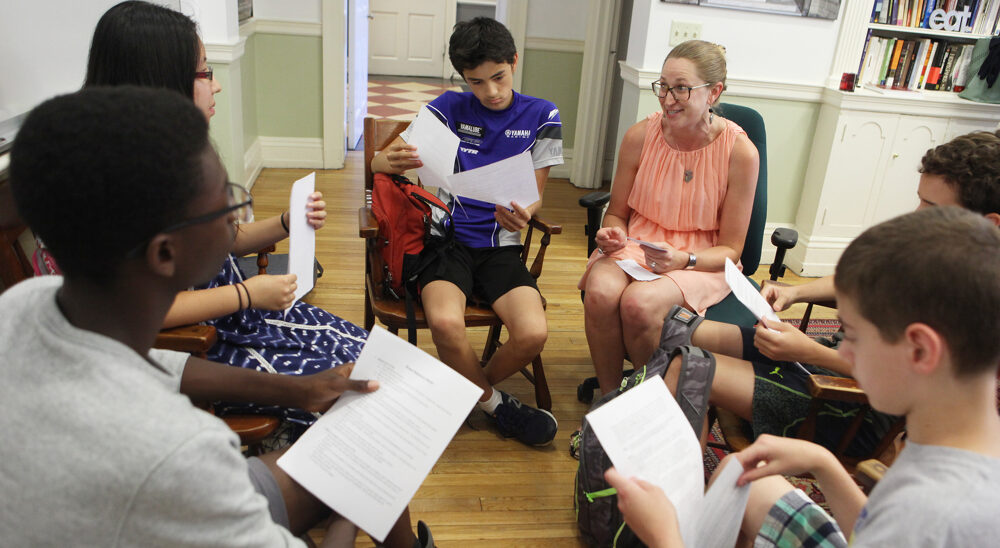Educating Young Americans for Citizenship is Our Schools’ Top Job
September 26, 2022
Share

Excerpt cross posted with permission from The Thomas B. Fordham Institute.
Citizens & Scholars is proud to publish a series of diverse perspectives on citizen engagement and democracy from our network of Fellows and partners.
We sometimes err by thinking that the way schools prepare students for citizenship is simply by teaching them “civics.”
How and what to teach in civics (and history and—more broadly—social studies) is its own issue and one worth taking seriously and doing well. A handful of states—both red and blue—are doing so today, at least setting exemplary expectations for what their students should learn during the K–12 years. But getting this part of the curriculum right is just part of what goes into preparing citizens.
The rest of the curriculum matters, too. Although every American has a right and responsibility to participate in our democracy even if illiterate and innumerate, people will have more power and agency if they can read newspaper articles, possess the background to understand what they’re seeing on television and their screens, make sense of data graphs, have some grounding in science, and more.
Yet the formal curriculum itself—the whole curriculum—is just part of what schools need to get right if they’re to do as much as they can to form citizens. At least as important are the values, habits, principles, convictions, and patterns of behavior that kids acquire in school. Those don’t just come from classroom instruction. They also come from extracurricular activities, from playground time and basketball games, from how the principal handles misbehavior (and rewards good behavior), from the examples that teachers set through their own personal conduct, from whether the school climate is one of integrity and mutual respect or corner-cutting and suspicion. Are students’ rights and responsibilities taken seriously? Are parents taken seriously? I don’t go quite as far as the late Theodore Sizer—the Harvard education dean who decades ago handed me my graduate degrees—whose “Coalition of Essential Schools” wanted every participating school to “model democratic practices that involve all who are directly affected by the school.” But it’s clear to me that how schools function as organizations and the lessons in citizenship that they convey by example and precept are at least as consequential as what happens in civics class.
This is also what distinguishes great education from skills training and what differentiates the schools of a democracy from those of totalitarian regimes. We’re not just making kids learn things and obey orders. We’re turning them into tomorrow’s voters, neighbors, public servants, and community leaders.
If our schools do this well, they’ll have fulfilled their most vital responsibility. We know, of course, that even at their best they can’t do it all, that the citizens kids grow up to be are also shaped by family, community, media, and myriad institutions of civil society. But the schools’ part is indispensable, both in the formal curricular sense and in the types of communities that they model.
Read the full post at the Thomas B. Fordham Institute.

Chester E. Finn, Jr., scholar, educator and public servant, has devoted his career to improving education in the United States. At Fordham, he is now Distinguished Senior Fellow and President Emeritus. He’s also a Senior Fellow at Stanford’s Hoover Institution.
Stay Engaged
Get More News
Join our mailing list to get more news like this to your mailbox.
Support Our Work
Help us invest in the talent, ideas, and networks that will develop young people as effective, lifelong citizens.
Ways to Support Us